- Home
- Paul Finch
Stolen
Stolen Read online
PRAISE FOR PAUL FINCH
‘Wonderfully dark and peppered with grim humour. Finch is a born storyteller and writes with the authentic voice of the ex-copper he is.’
PETER JAMES
‘Edge-of-the-seat reading … formidable – a British Alex Cross.’
SUN
‘An ingenious and original plot. Compulsive reading.’
RACHEL ABBOTT
‘As good as I expected from Paul Finch. Relentlessly action-packed, breathless in its finale, Paul expertly weaves a trail through the North’s dark underbelly.’
NEIL WHITE
‘A deliciously twisted and fiendish set of murders and a great pairing of detectives.’
STAV SHEREZ
‘Avon’s big star … part edge-of-the-seat, part hide-behind-the-sofa!’
THE BOOKSELLER
‘An explosive thriller that will leave you completely hooked.’
WE LOVE THIS BOOK
Copyright
Published by AVON
A Division of HarperCollinsPublishers Ltd
1 London Bridge Street
London SE1 9GF
www.harpercollins.co.uk
First published in Great Britain by HarperCollinsPublishers 2019
Copyright © Paul Finch 2019
Cover design © Henry Steadman 2019
Cover photograph © Henry Steadman
Paul Finch asserts the moral right to be identified as the author of this work.
A catalogue copy of this book is available from the British Library.
This novel is entirely a work of fiction. The names, characters and incidents portrayed in it are the work of the author’s imagination. Any resemblance to actual persons, living or dead, events or localities is entirely coincidental.
All rights reserved under International and Pan-American Copyright Conventions. By payment of the required fees, you have been granted the non-exclusive, non-transferable right to access and read the text of this ebook on screen. No part of this text may be reproduced, transmitted, downloaded, decompiled, reverse engineered, or stored in or introduced into any information storage and retrieval system, in any form or by any means, whether electronic or mechanical, now known or hereinafter invented, without the express written permission of HarperCollins.
Source ISBN: 9780008244019
Ebook Edition © May 2019 ISBN: 9780008244026
Version: 2019-03-15
Dedication
For my wife, Catherine,
always my strong right arm.
Contents
Cover
Title Page
Copyright
Dedication
Prologue
Chapter 1
Chapter 2
Chapter 3
Chapter 4
Chapter 5
Chapter 6
Chapter 7
Chapter 8
Chapter 9
Chapter 10
Chapter 11
Chapter 12
Chapter 13
Chapter 14
Chapter 15
Chapter 16
Chapter 17
Chapter 18
Chapter 19
Chapter 20
Chapter 21
Chapter 22
Chapter 23
Chapter 24
Chapter 25
Chapter 26
Chapter 27
Chapter 28
Chapter 29
Chapter 30
Chapter 31
Chapter 32
Chapter 33
Chapter 34
Chapter 35
Chapter 36
Chapter 37
Chapter 38
Chapter 39
Chapter 40
Chapter 41
Chapter 42
Chapter 43
Chapter 44
Chapter 45
Chapter 46
Chapter 47
Keep Reading …
Praise for Paul Finch
About the Author
By the same Author
About the Publisher
Prologue
The Hollinbrook estate, in Crowley, was as suburban as they came.
Not rich, but the gardens were neat, tidy, their lawns smoothly mown if not expansive. The cars on the drives were mainly family affairs, some a little beaten-up, all implying middle-income rather than wealth. But if it wasn’t hugely prosperous, at least the Hollinbrook had the air of safety. It might be part of Greater Manchester’s sprawling conurbation, but Hollinbrook was peaceful and quiet, a sedate backwater, where children could play unsupervised, and where pensioners like Harry Hopkins could take their dogs out for a late evening stroll in full confidence that nothing bad would happen to them.
Not that this would normally have been an issue for Harry. A former collier, he’d been a burly bloke in his youth, and though seventy-seven now, he still had a bluff, rugged aura. In his day, ‘graft’ had been a word that meant something: hot sweat, aching muscles, hands cut and callused, a body shrouded black with coal-dust. And none of it a source of complaint – because that was your job, your life, that was what you did to put food on the table.
A quarter of a century had passed since Hollinbrook Pit had closed, but Harry wasn’t the sole relic of those arduous days. He still lived at No. 8, Atkinson Row, the only line of dwellings that hadn’t been bulldozed in the late 1990s, when they’d finally started developing the vast brownfield site. This was partly because Atkinson Row had never looked out of place in the proposed new townscape. Its houses were more than serviceable, a terraced row of traditional two-up-two-downs, but with solid roofs, secure foundations and no hint of subsidence. These days they were downright attractive, their brickwork repointed and whitewashed, new pipes and gutters fitted, each with its own little garden at the back instead of a tiny yard and outdoor privy. They were still referred to locally as the ‘Pit Cottages’, even though Harry was the only ex-pitman living there. He had lived alone for the last nine years, since Ada had passed, but his property was the smartest of the lot, with a box of flowers under the front window, and his front door painted canary-yellow.
It was just after ten o’clock when Harry closed this handsome door behind him, the lock catching. Milly, his small Pekingese, waited patiently. She was thirteen now, tubby, grey at the jowls and bandy-legged. But she was an affectionate little soul who liked nothing better than an idle wander with her master. Harry buttoned up his overcoat, tugged his trilby down at the front and drew on his fingerless gloves. It was September, and the searing heat of August had noticeably diminished. Nights were cool, and there was an edge to the breeze.
They set off up the road together, Milly snuffling at the base of every streetlight, lapping at the occasional puddle left over from the afternoon rain, despite Harry’s gruff admonitions. They turned right at the top of the road, following their usual route.
Though it wasn’t terribly late, it was midweek, so each street they came to was bare of life: Candlemaker Avenue, Rotherwood Drive, Hornby Crescent, Billington Grove. They even sounded suburban, and they certainly looked the part: more of those manicured front gardens, rockeries, shrubbery. It was a far cry from the narrow terraced streets of Harry’s day. But in general, he had to concede that things tended to change for the better. It was too easy to get dewy-eyed about the past, especially if you hadn’t been part of it.
Most windows were now curtained, only soft lamplight filtering through, though now and then he passed an open bedroom window, and heard music playing or what sounded like a TV programme. That was something that had not changed for the better, in Harry’s opinion: kids having all that kit in their bedrooms when they should be out, running around. Not that he would really have expected that at this late hour, of course.
The black van.
By instinct, Harry tightened his grip on the lead, drawing Milly closer. The old girl wasn’t too worried. She didn’t exactly scurry these days.
The black van, though …
Harry didn’t know if it was one of these so-called urban legends. But if it was, he’d only heard about it recently. It had been down at the bookies a couple of weeks ago.
‘Whenever you’re walking your Milly, Harry … keep your eye out for this black transit van. It’s touring the neighbourhoods late at night. I’m not sure what it’s supposed to be up to … but you can guarantee it’ll be no good.’
‘Well, if you don’t know what it’s up to, how do you know it’s no good?’ Harry had responded, puzzled.
A helpless shrug. ‘I dunno, pal. People are just saying it.’
‘Oh … must be true then.’
But now that he was out here on the road alone, and it was past ten o’clock, Harry didn’t feel quite so scathing. He was sure the black van thing was a myth. Good God, there were black vans all over. But though certain parts of Crowley, like this, had been prettified in recent years, he couldn’t deny that life wasn’t as tranquil overall as it once had seemed. Not even in the shopping district where you saw homeless folk everywhere. That was a sad story, but it was a nuisance too. Some of them had mental health problems, some of them were drug addicts, and nearly all of them were beggars. That had been almost unknown during his youth, even though everyone had been considerably poorer back then.
Equally unknown had been this new level of nasty criminality. Harry had always fancied himself a rough customer, but he wouldn’t go anywhere near the town centre pubs on a Friday or Saturday night, not these days. He much preferred The Horsehoe at the top end of the estate, even if it did have a reputation for being an old fellas’ pub. Harry didn’t mind. Anything was better than someone smashing a bottle over your head because you’d looked at them the wrong way, and then kicking your face as you lay on the floor. And it wasn’t just the town centre either. There were plenty of housing estates around Crowley that were just as bad; run-down neighbourhoods like Hatchwood Green for example. Nearly everyone in those miserable districts was unemployed, which didn’t help of course, though to Harry’s mind it didn’t excuse the wife-battering, the drunks sitting on doorsteps, the needles and condoms left in playground sandpits.
Harry knew all this went on because he knew men and women of his own age who were unfortunate enough to live in these areas, and they reported it every time he met them. But even the Hollinbrook wasn’t as safe as it might appear. Not these days. It had been idyllic once, but slowly and subtly things had been changing as the villains had started to notice it. There were burglaries here now and occasional vehicle thefts. Prowlers had been reported, even some pets had allegedly gone missing.
And then, as he pondered this, he heard the scuff of what sounded like boot leather.
He glanced up and caught someone stepping out of sight.
Just ahead of him, on the other side of the road.
Harry faltered in his stride.
He almost stopped – before pressing on, grumbling to himself.
Highly likely his imagination had been running wild thanks to those worrying reflections. But he was now approaching the crossroads between Billington Grove and Bucks Lane, and it really had looked as if someone had just scampered away around the left-hand corner.
Big deal, he told himself. Was it an offence to walk home?
But actually it hadn’t looked as if he’d just glimpsed someone walking home. It had looked as if they’d been standing watching him, and then had ducked away to avoid being seen. When he came level with Bucks Lane, he glanced left, not sure what he expected. Perhaps unsurprisingly, he saw nothing and no one – though that didn’t mean there was nobody there, as whoever it was could have gone to ground in any one of the front gardens.
‘Bloody hell, lad,’ he muttered. ‘You’re letting these daft stories get to you.’
He trudged on past the junction, and only after a hundred yards glanced back, to ensure that no one was behind him.
No one was. At least, no one who was close by. But was that dark, diminutive shape back at the crossroads a figure? Standing there motionless? Staring after him?
Harry squinted. Perhaps it was another dog-walker? That wouldn’t be unusual. Or some other innocent resident standing outside their house having a smoke? But if so, why did they seem so interested in him?
Unless they weren’t. Unless there was no one there at all.
Harry couldn’t be certain. Most likely, he was seeing things. Fading eyesight and substandard streetlighting were the probable explanation. But, determined to show that he wasn’t concerned either way, he ambled casually on, turning left down Tottington Road, Milly toddling at his side. Everything along here was as it should be: cars in driveways, front lawns scattered with children’s toys and occasional bits of garden furniture; typical end-of-summer scenery.
He looked back over his shoulder. The road was deserted.
Daft, he chided himself. If that had been some idiot waiting to jump him, he’d have done it back at the crossroads. Why would he be following?
Harry turned right onto Langtree Brow, and then right again into a ginnel. Here he halted, tall hedges on either side, as Milly squatted to do her business. After she was finished, he got a poop bag from his pocket, scooped it all up and tied the bag in a knot. More by instinct than design, he again glanced behind him. He was halfway along the ginnel, which ran for about seventy yards before crossing a narrow footbridge over the Manchester-to-Southport railway. The gap where it opened into Langtree Brow was empty, though why he’d thought it might not be eluded him.
He strode on, turning up his overcoat collar against the chill, depositing the poop bag in the next bin. Milly seemed happy, sniffing under the hedges, nothing troubling her.
They crossed the footbridge together, the railway cutting a strip of blackness beneath them. They were now at the furthest point from home, and Harry was ready to head back, his legs getting tired. Walking south along Rampton Road, he crossed the railway line again and then followed alongside it. The only sound was Milly’s gentle panting and the clicking of Harry’s leather soles on the damp pavement. Occasional gusts of wind whispered through the leafage in the gardens or moaned among the electric cables down in the cutting.
It was easy to feel alone at moments like this. And vulnerable.
He passed another couple of street-entrances on his right. The first led into Hopwood Lane, the second into Delamere Avenue. Again, no one was around, though, as it happened, halfway down Delamere a black van was parked up on the right.
Harry forced a chuckle, reminding himself that there was nothing unusual about that. He hadn’t seen the van before and he’d walked past here a dozen times this last month alone, but that meant nothing.
He turned left onto Rose Street, now well on his way home, though this was always the least comforting part of the journey, because though there were houses on the left, Hollister Park stood to the right. It was nothing really – a miniature green space provided by the estate’s original builders so the local kids would have somewhere to hang out. It had a playground, and lots of grass for football. Even so, it probably occupied no more than a handful of acres – though at this time of night it was an unlit void. There’d been some problems here during the summer, with teenagers gathering late on, drinking and shouting. But the police had been called, and that had been it.
Of course, that didn’t mean there wasn’t somebody there now, maybe just beyond the outer fringe of trees, keeping a silent, steady pace with Harry. Not that Harry knew what any would-be mugger would have to gain. It wasn’t like he carried money when he was walking the dog, or wore an expensive watch, or even had a mobile phone (despite his daughter Janet’s endless badgering that he acquire one). Again, he was vexed with himself
for even thinking this way. This was his home neighbourhood, the place he’d lived all his life. He’d seen whole families come and go, he’d seen houses come and go, hell … he’d seen the pit come and go.
And he was frightened? Seriously?
Even so, he crossed to the other side of the road, so that the wet, leafy blackness of the park wasn’t directly at his shoulder. That wasn’t a sign that he was scared, he told himself; it was simple common sense. But he was still relieved to come to the end of the road and turn down Bradley Way. When a quick backward glance showed a clump of thickets on the edge of the park shuddering as though someone concealed among them was moving, Harry forced another chuckle.
‘Bloody breeze,’ he mumbled.
There was a breeze. He wasn’t making that up.
On Bradley Way, there was a minor incident when Harry glanced back and saw the headlights of a slow-moving vehicle only twenty yards to his rear.
He stumbled to a startled halt, at which point the vehicle, a large estate car, swung into the kerb to park. Harry continued to watch it even as he lurched on, until he blundered into a lamp-post. To the accompaniment of a faint, broken, rasping sound – what might have been muffled snickering laughter, though in truth was probably another breeze rattling the wet bushes – he hurried on, turning right into Malvern Avenue and then right again into Deerwood Close, where he stopped to get his breath and dab his forehead with a handkerchief.
It was okay, he told himself. He’d be home in a couple of minutes. He was almost there.
He glanced down at Milly, who’d craned her neck up to regard him curiously.
Even the bloody dog was wondering what was up with him.
Grim-faced, he crossed the road and turned onto Lodge Lane, and a few minutes later entered Atkinson Row at its bottom end. Harry could only feel relief as he wheezed his way along the pavement to his yellow front door. He inserted the key, looked to either side one last time – no one was anywhere in sight – and turned it. The door opened, and he stepped inside, Milly jumping over the step next to him. He wasn’t telling anyone down the bookies about this, that was for sure: how he’d become unaccountably afraid while walking the dog.

 Stolen
Stolen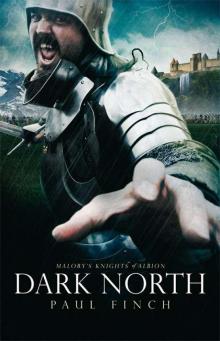 Dark North mkoa-3
Dark North mkoa-3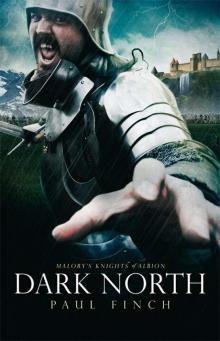 Dark North (Malory's Knights of Albion)
Dark North (Malory's Knights of Albion)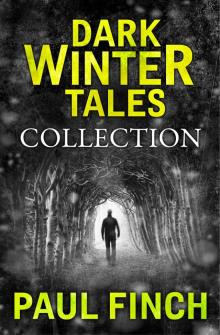 a collection of horror short stories
a collection of horror short stories Sacrifice
Sacrifice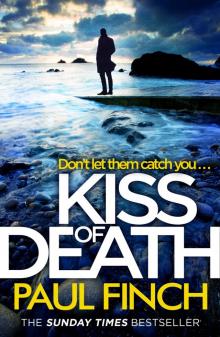 Kiss of Death
Kiss of Death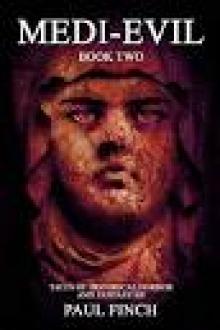 Medi-Evil 2
Medi-Evil 2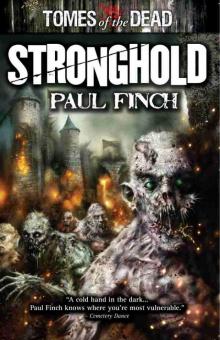 Stronghold
Stronghold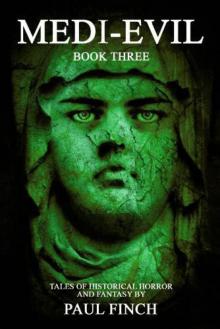 Medi-Evil 3
Medi-Evil 3 Dead Man Walking
Dead Man Walking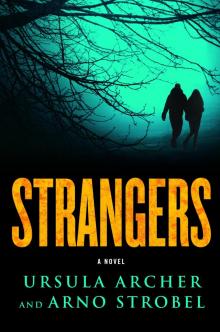 Strangers
Strangers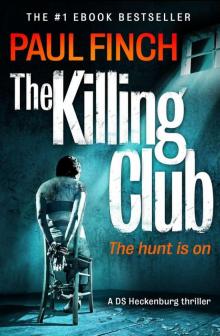 The Killing Club
The Killing Club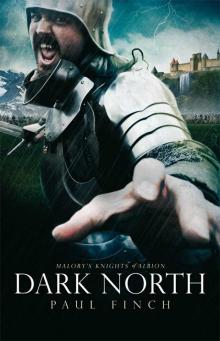 Dark North
Dark North A Wanted Man
A Wanted Man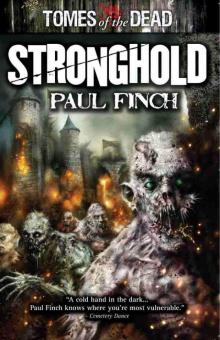 Stronghold (tomes of the dead)
Stronghold (tomes of the dead) Hunted
Hunted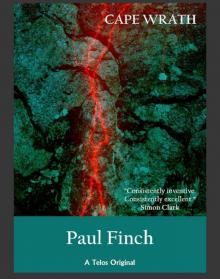 Cape Wrath
Cape Wrath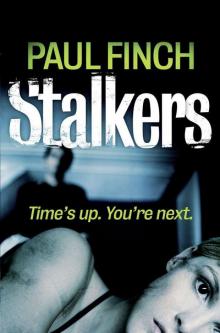 Stalkers
Stalkers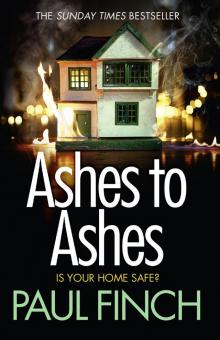 The Burning Man
The Burning Man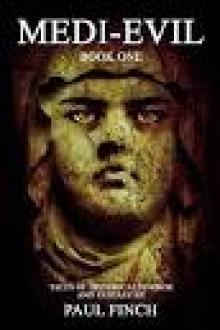 Medi-Evil 1
Medi-Evil 1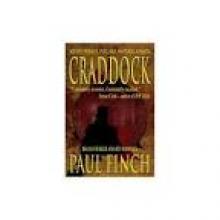 Craddock
Craddock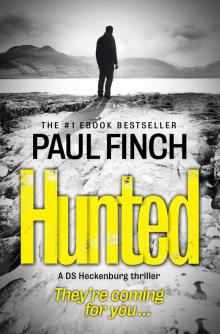 Hunted (Detective Mark Heckenburg Book 5)
Hunted (Detective Mark Heckenburg Book 5)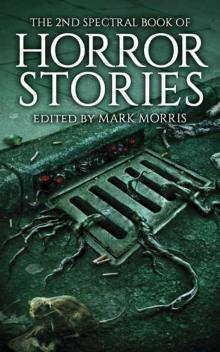 2nd Spectral Book of Horror Stories
2nd Spectral Book of Horror Stories The Chase
The Chase